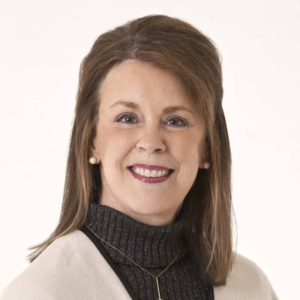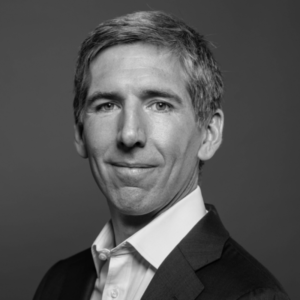
Reading Time: 5 minutes
Bitcoin has soared in recent months, smashing through its 2017 highs and new territory for the first time in three years. The bitcoin price hit around $42,000 per bitcoin in January 2021, up around 300% since early October 2020. At the time of this writing, the cryptocurrency is up around 40% YTD and its blistering bull run has attracted attention, not only from millennial retail investors but also from institutional investors, who view it as a potential safe-haven asset akin to gold.
In December 2017, the search term “bitcoin” reached a peak according to Google Trends, but recently, there has been a renewed interest in the cryptocurrency. There have been numerous articles, news stories, and documentaries on the topic, but as with everything else, it is sometimes difficult to determine what the ulterior motive of the source is. Most of the articles that promote bitcoin have either a “get rich quick scheme” or “doomsday is approaching” mentality. We don’t believe that living on the edge of greed or fear is healthy.
Is bitcoin the latest Fad or Bubble?
Let us first preface this article with humility and let you know that although we have interviewed experts in this field on our podcasts, we do not consider ourselves experts on cryptocurrency (such as bitcoin). Our job is to be the buffer between headlines, your emotions, and your portfolio, so we offer our humble opinion on bitcoin, based on our research.
Every so often, there comes a “new” product that is touted as the “next big thing.” There have been periods of history where tulip bulbs and things ending in “.com” were fetching headline news and investment dollars, only to find out they were fads or bubbles. History will prove whether bitcoin will join such speculative ranks.
Regarding bitcoin as an inflation hedge
The idea of bitcoin as a hedge against inflation has continued to gain traction among investors, amid unprecedented stimulus from governments around the world to tackle the coronavirus crisis. Some analysts have argued such action could lead to a spike in inflation. It is true that last year the U.S. government passed a lot of legislation to provide stimulus to individuals and companies to mitigate a wide-spread economic depression.
With U.S. federal debt at 100.1% of GDP, the highest since World War II and rising, investors often wonder what the breaking point could be of mounting U.S. debt. The critical consideration to examine is not actually the level of debt or the ratio of debt to GDP, but rather the cost of servicing the debt.
Our national debt is soaring, but the interest rate paid on that debt has come down sharply in recent decades. Interest rates have come down for a number of reasons, but partly due to the Federal Reserve holding rates low, and forecasting that they will keep the Federal Funds rate low in the near term. This has made debt more affordable, and in the near term should be sustainable.
The national debt stands in for virtually all the evergreen doomsday scenarios we encounter. They’re all premised on extrapolation–and on the idea that Armageddon when it finally comes, will give no warning. Both suppositions are highly improbable, and there’s no way to make rational investment policy out of either, much less both.
Remember, that policy, not politics, is what matters most for portfolio construction. Besides, if inflation is one’s fear, what has ever been a more efficient long-term inflation killer than mainstream equities?
Some Concerns about bitcoin
The definition of currency is “a system of money in general use in a particular country.” Our first concern we have is that bitcoin is not backed by assets or even the full faith and credit of any government or widely-trusted agency the same way traditional currencies are. Based on the definition of a currency, one could argue that at this time, it isn’t one.
Bitcoin offers anonymity and freedom from regulation, which allows it the opportunity to engage in illegal activity from drug and sex trafficking to child porn. This is a huge red flag for us, and a primary reason we do not encourage direct investments in bitcoin.
One of the reasons why bitcoin has gone up in value recently has to do with its limited supply. When Satoshi Nakamoto (the name used by the presumed pseudonymous person or persons who created the concept of bitcoin) invented the code for bitcoin, he limited the supply of bitcoins to be mined to be 21 million. So far, around 19 million have been mined, but the remaining 2 million or so will take until the year 2140 to be mined as the reward for mining bitcoin effectively lowers bitcoin’s inflation rate in half every four years. The reward for mining bitcoin will continue to halve every four years until the final bitcoin has been mined.
However, the lack of regulation means that it is possible the bitcoin network protocol could be changed between now and 2140. Furthermore, any increase in supply can have devastating effects on the value of each bitcoin, and even a whiff of this potential can be enough to scare market participants into a selloff. For example, if Satoshi Nakamoto who has been off the grid for about 10 years dumps his portion of bitcoin (1 million or 5% of bitcoins in circulation) on the markets, there could be a massive crash in bitcoin.
What About Blockchain Technology?
We do find the topic of blockchain technology extremely interesting. We think there are promising uses for this technology in our financial and money markets, but we seem to be quite a ways from that, and it is unclear who the beneficiaries might be and what opportunities may result from these technologies.
Fear of Missing Out
“Better three hours too soon than a minute too late” is a line from a nearly 400-year Shakespeare play, The Merry Wives of Windsor. Unfortunately, business history and market history is filled with stories that prove this old adage wrong. For example, you are likely carrying an iPhone or Android phone instead of a Palm Treo these days, and updating the world on Facebook instead of LiveJournal.
Just because bitcoin has been the most well‐known use of blockchain to date, that does not mean it will endure or become the most successful. Like any other industry, innovation improves productivity for its adopters, weeding out the weak or slow. Market prices tend to reflect investors’ collective opinion on who stands to gain, and it isn’t always the first-to-market. Therefore, it is nearly impossible to know how to invest on a given idea without specific insider information or speculation.
Because it is nearly impossible to model or even rationalize a potential outcome, we recommend steering clear of bitcoin-related investments that you are unwilling or unable to lose.
We humbly recognize that this can turn out to be the naïve or cynical view, but we are willing to be wrong in this case. Intelligent Investing believes in broadly diversifying and prudently allocating investment dollars into economically-viable enterprises whose expected profits are derived in understandable ways, and not based on prediction, speculation, or hype. In our opinion, we believe bitcoin resembles the latter at this point in time.
Intelligent Investing looks forward to revising this position as new information becomes available.


